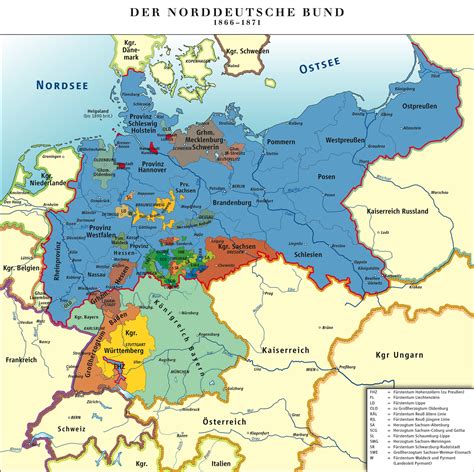Explore Bulgaria’s rich history from early civilizations to modern changes, including the influence of the Roman Empire and Ottoman rule. Discover Bulgaria’s journey to independence.
Early Civilization in Bulgaria
Contents
Early Civilization in Bulgaria dates back to the Neolithic period, with evidence of human settlement and agricultural activity in the region. The Thracians, an ancient civilization that inhabited the area, played a significant role in shaping the early history of Bulgaria. They were known for their skilled metalworking, religious rituals, and intricate artistry. The Thracian culture left a lasting influence on the region, particularly in the areas of art, religion, and language.
The Greek civilization also had a profound impact on early Bulgaria, with the establishment of numerous Greek colonies along the Black Sea coast. These colonies brought trade, cultural exchange, and the spread of Greek influence throughout the region. The blending of Thracian and Greek traditions contributed to the rich tapestry of early Bulgarian civilization.
One of the most well-known sites from this period is the ancient city of Serdica, which later became the capital of the Roman province of Moesia. The strategic location of Serdica made it a hub for trade and cultural exchange, further enhancing the diversity and complexity of early Bulgarian civilization.
The legacy of early civilization in Bulgaria is evident in the numerous archaeological sites, artifacts, and historical landmarks that dot the landscape. From the Thracian tombs and sanctuaries to the Greek colonies and Roman cities, the enduring impact of these ancient cultures is a testament to the rich and diverse history of Bulgaria.
Influence of the Roman Empire
Influence of the Roman Empire
The Influence of the Roman Empire on the history of Bulgaria is profound and far-reaching. The Romans conquered the territory of present-day Bulgaria in the 1st century AD, and it became an important part of the Roman Empire. The Roman influence on Bulgaria can be seen in various aspects of the country’s culture, architecture, and language.
One of the major legacies of Roman rule in Bulgaria is the numerous ancient Roman ruins that can be found throughout the country. The most famous of these is the ancient city of Serdica, which is now modern-day Sofia, the capital of Bulgaria. The Roman ruins in Bulgaria are a testament to the architectural and engineering prowess of the Roman Empire and are a popular tourist attraction.
The Roman influence on Bulgarian language and culture is evident in the many Latin words that have been incorporated into the Bulgarian language. The adoption of Christianity as the state religion of Bulgaria in the 9th century AD also had a significant impact on the country’s culture, and this was directly influenced by the Roman Empire’s conversion to Christianity.
Furthermore, the Roman legal system and administrative practices left a lasting impact on Bulgaria. The Roman law and governmental structure became an integral part of the Bulgarian state, and many of these institutions continued to exist and evolve even after the fall of the Roman Empire.
In conclusion, the influence of the Roman Empire on Bulgaria has shaped the country’s history, culture, and identity in many ways, and it continues to be an important part of Bulgaria’s heritage. The legacy of Roman rule in Bulgaria is evident in the country’s architecture, language, and legal and administrative systems, and it serves as a reminder of Bulgaria’s rich and diverse history.
The Bulgarian Empire
The Bulgarian Empire was a medieval empire that existed in the Balkans from the 7th to the 14th century. It was established in 681 AD by Khan Asparuh, who led the Bulgars to settle in the lands north of the Danube River. The empire reached its peak under the rule of Khan Krum in the late 9th century, expanding its territory and exerting influence over neighboring regions.
Under the leadership of Tsar Simeon I in the 10th century, the Bulgarian Empire experienced a period of cultural and intellectual flourishing, known as the Golden Age of medieval Bulgarian culture. The empire was a major power in southeastern Europe, rivaling the Byzantine Empire and exerting influence over the region.
The Bulgarian Empire eventually declined due to internal conflicts, invasions by the Byzantines, and the gradual encroachment of the Ottoman Turks. It was ultimately conquered by the Ottoman Empire in the late 14th century, marking the end of the medieval Bulgarian state.
Despite its eventual downfall, the Bulgarian Empire left a lasting impact on the history and culture of Bulgaria. It played a crucial role in shaping the identity of the Bulgarian people and continues to be remembered as a significant period in the country’s history.
Ottoman Rule and Independence
The Ottoman Empire ruled over Bulgaria for almost five centuries, from the late 14th century until the late 19th century. This period had a profound impact on the country, shaping its culture, society, and politics in significant ways. The Ottomans brought with them a new religious and administrative system, as well as a new set of social norms and customs that significantly altered the fabric of Bulgarian society. Despite the challenges and hardships of living under Ottoman rule, Bulgarians managed to preserve their national identity and culture, laying the groundwork for their eventual independence.
During this time, Bulgarian resistance movements emerged, aiming to overthrow Ottoman rule and regain independence. These movements were often suppressed by the Ottoman authorities, leading to periods of unrest and upheaval. Despite the obstacles, the desire for freedom and self-determination remained strong among the Bulgarian people, fueling their determination to break free from Ottoman control.
The struggle for independence gained momentum in the 19th century, fueled by the rise of nationalist sentiment and the weakening of the Ottoman Empire. The Russo-Turkish War of 1877-1878 played a crucial role in Bulgaria’s quest for independence, as it led to the liberation of the country from Ottoman rule. The Treaty of San Stefano, signed in 1878, recognized Bulgaria as an independent state, marking the end of nearly 500 years of Ottoman dominance.
However, Bulgaria’s path to independence was not without its challenges. The Great Powers, particularly Britain and Austria-Hungary, were wary of the emergence of a strong and independent Bulgaria, leading to the renegotiation of the terms of the Treaty of San Stefano at the Congress of Berlin. As a result, Bulgaria was divided into several smaller entities, leading to widespread disappointment and disillusionment among the Bulgarian people.
Despite the setbacks, Bulgaria eventually managed to assert its independence and establish itself as a sovereign state in the late 19th century. The legacy of Ottoman rule and the struggle for independence continues to influence Bulgaria’s national identity and historical consciousness to this day, shaping its modern-day politics, culture, and society.
Modern Bulgaria: 20th Century Changes
In the 20th century, Bulgaria experienced significant changes that impacted the country’s political, social, and economic landscape. One of the most notable events during this period was the communist takeover in 1946, which led to the establishment of a single-party state under the leadership of the Bulgarian Communist Party. This marked the beginning of a new era for Bulgaria, as the country became closely aligned with the Soviet Union and adopted communist policies that had a lasting impact on its development.
Despite initial efforts to modernize and industrialize the country, Bulgaria faced numerous challenges, including economic hardships and political repression. The collapse of the Soviet Union in 1991 further transformed Bulgaria, leading to the end of communist rule and the establishment of a democratic government. This period of transition brought significant changes to the country’s political system, as well as its relations with the international community.
During the late 20th century, Bulgaria also embarked on a series of reforms aimed at modernizing its economy and integrating with the European Union. This included adopting market-oriented economic policies, privatizing state-owned industries, and improving governance and the rule of law. These changes were instrumental in paving the way for Bulgaria’s eventual accession to the European Union in 2007, a significant milestone in the country’s history.
In addition to economic and political changes, the 20th century also brought significant shifts in Bulgaria’s cultural and social landscape. The country witnessed a renewed emphasis on preserving its cultural heritage and traditions, as well as embracing new forms of artistic expression. This period also saw the emergence of a more diverse and dynamic society, characterized by greater openness and tolerance.













